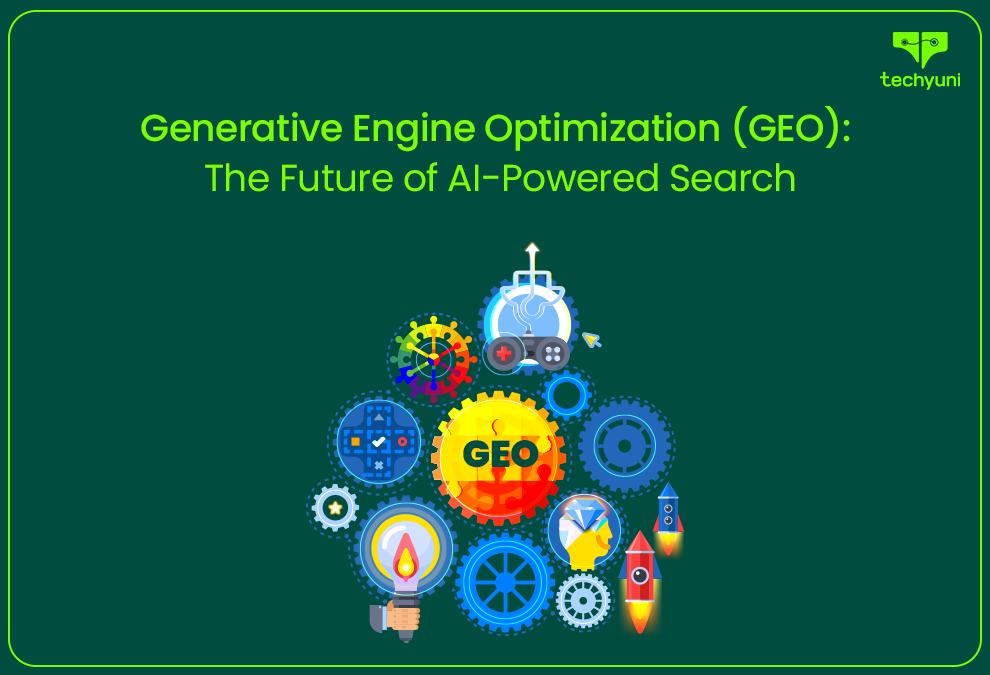
Generative Engine Optimization (GEO): The Future of AI-Powered Search
Discover Generative Engine Optimization (GEO) – the future of AI-driven search. Learn how to optimize content for AI-powered search engines and stay ahead in the evolving digital landscape.
Generative Engine Optimization (GEO): The Future of AI-Powered Search
Introduction
In the fast-evolving world of artificial intelligence, a new term is gaining traction: Generative Engine Optimization. As AI-driven search engines replace traditional keyword-based searches with generative AI models, businesses and content creators must adapt their strategies. GEO is the process of optimizing content for AI-powered search engines, ensuring visibility and engagement in a world where AI-generated responses are becoming the norm.
What is Generative Engine Optimization (GEO)?
GEO refers to the practice of optimizing digital content to rank higher and be more relevant in AI-generated search results. Unlike traditional SEO, which focuses on search engine algorithms, GEO targets AI models like ChatGPT, Google Gemini, and Bing Copilot that generate responses based on user queries. By implementing strategies, businesses can increase their content’s likelihood of being included in AI-generated answers, thus improving visibility and traffic.
How GEO Differs from Traditional SEO
Traditional Search Engine Optimization (SEO) revolves around keywords, backlinks, and structured data to rank on search engines like Google. Generative Engine Optimization, on the other hand, optimizes content for AI-driven models that synthesize information rather than displaying a list of links.
Key differences include:
-
Contextual Relevance: GEO focuses on providing clear, structured, and highly informative content that AI models can understand and summarize.
-
Conversational Optimization: AI-powered search engines prioritize content that aligns with natural language queries.
-
Authority and Trustworthiness: AI models favor content from authoritative sources, making credibility a crucial aspect of Generative Engine Optimization.
Best Practices for GEO
To ensure your content is AI-friendly, here are the best strategies:
1. Create High-Quality, AI-Optimized Content
AI models prioritize content that is:
-
Clear, concise, and well-structured
-
Informative, offering in-depth analysis and insights
-
Written in a natural, conversational tone
2. Use Structured Data and Schema Markup
Structured data helps AI engines understand your content better. Implement schema markup for FAQs, how-to guides, and structured articles to improve AI search visibility.
3. Optimize for Conversational Queries
Since AI models generate responses based on user intent, GEO requires content to be aligned with natural language processing (NLP). Use:
-
Long-tail keywords that mimic user questions
-
Conversational phrases like “How does GEO work?” or “What is the future of GEO?”
-
FAQ-style content to directly address common queries
4. Enhance Credibility and Authority
AI-powered search prioritizes sources with expertise and credibility. To improve your GEO ranking:
-
Publish well-researched, factual content
-
Cite reputable sources and link to high-authority websites
-
Demonstrate expertise by including author bios and credentials
5. Leverage AI-Generated Summaries
AI engines often extract key takeaways from content. To optimize:
-
Use bullet points and summaries
-
Include a TL;DR section at the beginning or end of your article
-
Structure content in a way that AI can easily parse and present in its responses
Why GEO Matters for Businesses and Marketers
As AI-driven search engines continue to evolve, Generative Engine Optimization is becoming essential for brands and content creators. Here’s why:
-
Increased Visibility: Optimizing for AI-generated responses ensures that your content is featured in voice searches and AI search results.
-
Higher Engagement: Conversational search queries lead to more personalized responses, improving user interaction.
-
Competitive Advantage: Early adoption of GEO strategies helps businesses stay ahead in the AI-driven digital landscape.
The Future of Generative Engine Optimization
GEO is not just a trend; it’s the future of search. As AI technologies advance, businesses that embrace GEO will have a competitive edge in digital marketing. The future may see:
-
Greater AI Personalization: AI models will provide more tailored content recommendations.
-
Voice Search Optimization: With the rise of smart assistants, GEO will play a crucial role in optimizing content for voice-based interactions.
-
AI-Powered E-Commerce: Generative AI will reshape online shopping experiences, making GEO essential for product listings and recommendations.
Related: Unleashing the Power of AI Tools for SEO: Elevate Your Website’s Performance
Conclusion
Generative Engine Optimization is revolutionizing how content is ranked and discovered in the AI era. By implementing best practices—such as optimizing for AI-generated responses, enhancing credibility, and using structured data—businesses can ensure they remain visible and relevant. As AI search continues to evolve, staying ahead of GEO trends will be crucial for digital success.